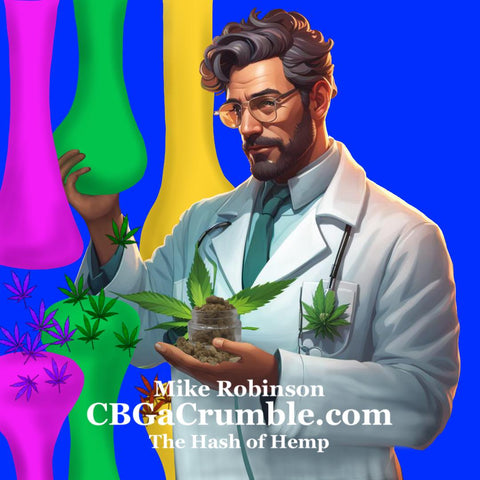The Farm Bill, which brought a significant change for the U.S. hemp industry by de-scheduling commercial hemp production and eliminating hemp from the Controlled Substances Act, would provide regulation for cannabinoids, including Delta-8.
The U.S. agricultural and cannabis sectors have reached a critical juncture with the House of Representatives agreeing on a stopgap funding bill that includes a one-year extension to the 2018 Farm Bill.
This decisive action for averting a government shutdown will extend the Bill's provisions until September 30, 2024, a significant development for the U.S. hemp industry and cannabinoid regulation.
Some in the Cannabis Industry wanted action, but many feel relief that things get to stay the same, awaiting unsure FDA regulations on CBD and more.
The Urgency of the Farm Bill Extension
In October, Senator John Boozman highlighted the urgency of extending the 2018 Farm Bill, given the missed September renewal deadline. The Farm Bill, pivotal in de-scheduling commercial hemp production and removing hemp from the Controlled Substances Act, has been a game-changer, particularly for cannabinoid products like Delta-8 and CBGa Crumble - the ongoing success and stability of the U.S. hemp industry hinge on this renewal.
Impact on the Cannabis and Cannabinoid Sector
This extension is particularly vital for those in the cannabis and cannabinoid industry. It offers a much-needed reprieve, allowing continued sales of several more controversial cannabinoids that get made in legal labs from CBD. However, what's known as the conversion market isn't immune from the actions of the DEA in scheduling substances or analogs.
Researching High THC Tolerance
For cannabinoid research, particularly in areas of high THC tolerance and the development of products like CBGa Crumble, this extension provides a stable regulatory environment to continue this vital work with a revision that could affect all operations. Changes in Federal law cause income fluctuations; this often comes with a cost to all operations in the industry that gets passed on to the consumer. Many are anxiously awaiting the President's signature on this Extension Act.
Endocannabinoid Balance, Tolerance, and Conversions:
We haven't seen an adequate human study on lab converted Cannabinoids. One thing that's been a constant is reports of high THC tolerance with a complicated ability to control it by those using multiple different analogs of THC in comparison to the plant's THC.
However, a high percentage of all users of cannabinoids like it or the real deal - will end up with imbalances and dysfunction in the Endocannabinoid System. CBGa Crumble is all about Balance Control; it's why I've studied ECS Balance for nearly a decade.
The process of converting CBD (cannabidiol) to THC (tetrahydrocannabinol) involves a chemical transformation that typically occurs under specific laboratory conditions. None of this is new - it's just the market that's new to people, as many of the analogs were created in the late 1960s, some by the late Professor Raphael Mechoulam.
This process of conversion can make quite a bit and can yield various types of THC, each with unique characteristics and effects. Here are just a few of the types of cannabinoids produced through the conversion of CBD to THC:
Delta-8 THC: Delta-8 THC is similar to Delta-9 THC but with slightly different chemical structures and less potent psychoactive effects. It is typically found in deficient concentrations in cannabis plants but is created in large labs in higher quantities through the conversion of CBD. Delta-8 is known for its more stable and less intense psychoactive properties compared to Delta-9 THC.
Delta-9 THC: This is the most well-known and naturally occurring form of THC found in cannabis plants. It is responsible for the psychoactive effects often associated with cannabis use. Delta-9 THC from hemp is synthesized from CBD through a process involving acids and heat.
Delta 10 THC: This is a less common isomer of THC produced under specific laboratory conditions. Delta 10 has a slightly different chemical structure compared to Delta-9 THC and could be better studied.
THC-O Acetate: This is a synthetic cannabinoid derived from THC. It's an acetate ester of THC and is far more potent than regular THC. THC-O Acetate is not naturally occurring and is produced in a laboratory setting through the acetylation of Delta-8 or Delta-9 THC derived from CBD. This cannabinoid is under review by the DEA; many consider it now to be Schedule 1.
THC-V (Tetrahydrocannabivarin): Although THC-V is naturally occurring in certain cannabis strains, it's almost always synthesized from CBD when put in products. THC-V is structurally similar to THC but has different effects, often characterized by a more clear-headed and stimulating high. It also has potential appetite-suppressing properties.
HHC and many more exist - all of them have been a constant in consumers reporting issues - the good news is CBGa Crumble has helped so many; it's incredible whether it's Tolerance to the plant's THC or the converted.
Back to the boring Government - but this time, they excited us.
Government Shutdown and Agricultural Uncertainty
The agreement on this stopgap Bill by House and Senate Agriculture Committee leaders is a strategic response to the looming government shutdown. The extension of the 2018 Farm Bill is part of a broader effort to sustain funding for various government programs. Senators Stabenow, Boozman, Thompson, and Scott have emphasized the need for this extension to provide certainty to producers, stating that it is not a substitute for a comprehensive five-year Farm Bill, which they remain committed to achieving next year.
Political Tensions and the Shutdown Proposal
Secretary Karine Jean-Pierre has described the shutdown proposal as extreme and a harbinger of potential chaos. This political tension underscores the need for bipartisan collaboration to ensure the agricultural sector's continuous support, including the burgeoning cannabis and cannabinoid industries.
Balance your ECS - Try CBGa Crumble and end the T Breaks!




